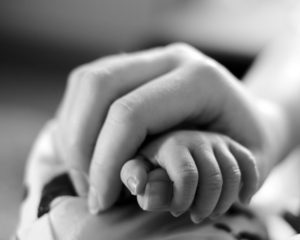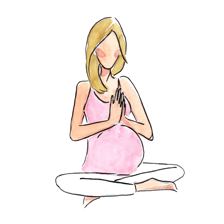 I want to open this reflective piece with a disclaimer…I am not a specialist; I do not have any professional training or qualifications in the arenas of navigating pregnancy and birth. Nor am I an “expert” in becoming a parent, if anything, my own experiences have led me to the conclusion that this does not exist. The following is a reflective account of my own experience of traversing pregnancy and the safe delivery of my beautiful baby boy, shared through the lenses and privileges of my own Social GRACES, on the off chance that someone else may find it helpful. It is about how I believe that my experiences of NVR have coloured and shaped my internal and external worlds, which positively impacted my pregnancy and birth. At its core it is about my belief that NVR is a psyche, and my curiosity about the potential for a movement where there were opportunities to learn about and experience the NVR position in the relationships, we share with ourselves and our own worlds before it is “needed” in our relationships with others.
I want to open this reflective piece with a disclaimer…I am not a specialist; I do not have any professional training or qualifications in the arenas of navigating pregnancy and birth. Nor am I an “expert” in becoming a parent, if anything, my own experiences have led me to the conclusion that this does not exist. The following is a reflective account of my own experience of traversing pregnancy and the safe delivery of my beautiful baby boy, shared through the lenses and privileges of my own Social GRACES, on the off chance that someone else may find it helpful. It is about how I believe that my experiences of NVR have coloured and shaped my internal and external worlds, which positively impacted my pregnancy and birth. At its core it is about my belief that NVR is a psyche, and my curiosity about the potential for a movement where there were opportunities to learn about and experience the NVR position in the relationships, we share with ourselves and our own worlds before it is “needed” in our relationships with others.
Becoming a parent has opened my eyes to the spectrum of trauma that a huge percentage of women (and men) experience and carry with them in relation to the births of their children. Some reports suggest that up to a third of women are left traumatised by their birth experiences. One third of women. This statistic leaves me thinking about the ripples of trauma, the way that it organises and influences, the impact on the individual, the child, the family, society. I have dabbled in reading the accessible research and most powerfully I have felt it, sat in a room with new Mums as they hold their babies and recount how they brought them into the world…not in a safe therapeutic environment but on the floor of a mother and baby class. Most of the accounts I have heard have been from women who when they felt at their most vulnerable, did not feel heard, did not feel seen and felt done to. They felt left in a place of unsafe uncertainty. During my reading and listening I realise that I feel “lucky” that I do not have a birth story like this…then I catch myself, “lucky” surely my experience should be the rule and not the exception.
From my bed, as I type these thoughts into my phone whilst my son lies asleep next to me, I wonder how NVR could play its part in supporting new and ‘soon-to-be’ parents in taking an empowered position, to be present and anchored, from as early on as pregnancy. So that the same ideas and concepts that help parents to navigate the parent-child relationship, could also help as they bring their child into the world.
When I found out I was pregnant I was plagued by the same rush of conflicting emotions I imagine most people do to a lesser or greater extent; joy, fear, excitement, terror… One thing I did know with a great degree of certainty was that I would use hypnobirthing to navigate my pregnancy, labour, and birth. I found out I was pregnant around 4 weeks before the first lockdown of 2020 and spent all my pregnancy in some level of lockdown or restriction. Amongst the many ways this impacted my pregnancy, it meant that all my birth preparation was done using books and different levels of online learning and resource.
Hypnobirthing really “worked” for me, in many ways I loved it. But at the same time as I moved into my third trimester and things started to become more complicated and more medicalised, I couldn’t shake the feeling that I was “failing”. This feeling of failure was the exact feeling I had read time and time again hypnobirthing would help me to, at worst navigate and at best avoid. However, as discussions around induction and due dates loomed chapters about there being “no place like home” and stories of tranquil water births started to overshadow my own journey. I reflected a lot on this, alone, with my partner, with other new Mums, and what began to become clear in my mind was that the aspects of hypnobirthing that I “loved”, that were most helpful, were in essence NVR.
The greatest thing that helped me to navigate my pregnancy, labour and birth was developing my sense of agency, as an individual and as a soon-to-be Mum. One of the most significant factors within this was to learn to accept that I could not “control” everything about how my pregnancy and labour would unfold, but I could influence it. I could have influence by empowering myself with knowledge, understanding, self-awareness, self-care and self-compassion.
What the books and online courses did was to help me, for the first time in 34 years, to really understand my body and tune into the relationship I share with it. The learning provided me with a basic understanding of the anatomy and physiology of my body and what it had, was and would be doing through pregnancy, labour and birth. This information began to soften the internalised image I had held of my body and quietened the abusive thoughts and feelings I had harboured for it through the years. I began to see and feel my body’s strength and was amazed by its capacity and resilience. I began to trust my body. In hindsight I realise that I stepped out of familiar patterns of escalation with my body and instead began to learn how I could support it through connection, compassion and self-care, to do all it could to bring my son into the world.
I recognised that my relationship with authority which can lead me to feelings of intimidation and disempowerment, as I submit to age-old thoughts that “they must know best”, was playing out in my appointments with medical professionals. This position triggers for me feelings and emotions that I knew would not be helpful for my body when it was working to its maximum capacity and pulling on all its resources.
 So, I worked hard at learning to anchor myself, to relax, to care for myself in a way which I had never previously done. I wrote affirmations, chose relaxing scents which I defused every night before bed, recorded relaxation scripts which I listened to on repeat, invested emotionally in mindfulness, learned how to breath and to control my breathing, connected to music, songs and images which take me to a place of calm. I told my partner what I needed from him during labour and birth in no uncertain terms. I wrote a birth preference list so that those supporting me knew what I needed and what I was hoping for, I made sure this list was placed in my medical notes and referred to it to support my discussions and decision-making process with medical professionals. I pushed the pause button when I needed to. I then took all of this with me into the delivery suite and then unexpectedly into the operating theatre.
So, I worked hard at learning to anchor myself, to relax, to care for myself in a way which I had never previously done. I wrote affirmations, chose relaxing scents which I defused every night before bed, recorded relaxation scripts which I listened to on repeat, invested emotionally in mindfulness, learned how to breath and to control my breathing, connected to music, songs and images which take me to a place of calm. I told my partner what I needed from him during labour and birth in no uncertain terms. I wrote a birth preference list so that those supporting me knew what I needed and what I was hoping for, I made sure this list was placed in my medical notes and referred to it to support my discussions and decision-making process with medical professionals. I pushed the pause button when I needed to. I then took all of this with me into the delivery suite and then unexpectedly into the operating theatre.
If I told you that my labour journey started on a Monday morning at 7am with a medical induction and ended with an unplanned caesarean section at 2.09am on Wednesday, I imagine most people would make assumptions that this had been a difficult and bad experience. On the contrary my birth experience was dare I say it magical. When I really try to pinpoint why it is because I remained empowered throughout, I maintained my sense of agency. I understood what was happening to my body and why, I made decisions based on as much information as I could gather at any given moment, I paused to check in with myself, I was persistent in my position and resisted when I needed to. I took care of myself. I utilised my support network to the best of my ability.
As I write this, I am aware that my birth experience was not impacted by the fallout of emergency circumstance and the emotion, pressures, and trauma such situations may lead to. Therefore, my ability to maintain my position was potentially easier than it could have been. However, I am also aware that the capacity to be able to take up this position at all and to anchor to it, was generated through my relationship with NVR.
As an NVR Practitioner I have been asked time and time again “how old does a child have to be for their parents to “do” NVR”. My son wasn’t even born when we started to navigate our relationship through the lens of NVR, because NVR is not something I “do” to him it is something I embody in my relationship with myself and therefore in my relationship with him.
By: Amy Smith
Accredited NVR Practitioner (NVRA) & PartnershipProjects Associate
